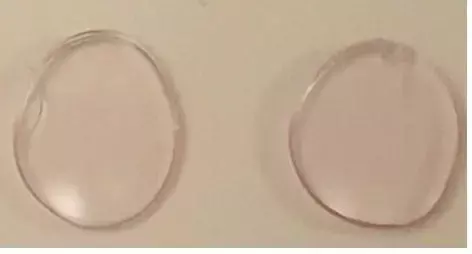- Home
- Medical news & Guidelines
- Anesthesiology
- Cardiology and CTVS
- Critical Care
- Dentistry
- Dermatology
- Diabetes and Endocrinology
- ENT
- Gastroenterology
- Medicine
- Nephrology
- Neurology
- Obstretics-Gynaecology
- Oncology
- Ophthalmology
- Orthopaedics
- Pediatrics-Neonatology
- Psychiatry
- Pulmonology
- Radiology
- Surgery
- Urology
- Laboratory Medicine
- Diet
- Nursing
- Paramedical
- Physiotherapy
- Health news
- Fact Check
- Bone Health Fact Check
- Brain Health Fact Check
- Cancer Related Fact Check
- Child Care Fact Check
- Dental and oral health fact check
- Diabetes and metabolic health fact check
- Diet and Nutrition Fact Check
- Eye and ENT Care Fact Check
- Fitness fact check
- Gut health fact check
- Heart health fact check
- Kidney health fact check
- Medical education fact check
- Men's health fact check
- Respiratory fact check
- Skin and hair care fact check
- Vaccine and Immunization fact check
- Women's health fact check
- AYUSH
- State News
- Andaman and Nicobar Islands
- Andhra Pradesh
- Arunachal Pradesh
- Assam
- Bihar
- Chandigarh
- Chattisgarh
- Dadra and Nagar Haveli
- Daman and Diu
- Delhi
- Goa
- Gujarat
- Haryana
- Himachal Pradesh
- Jammu & Kashmir
- Jharkhand
- Karnataka
- Kerala
- Ladakh
- Lakshadweep
- Madhya Pradesh
- Maharashtra
- Manipur
- Meghalaya
- Mizoram
- Nagaland
- Odisha
- Puducherry
- Punjab
- Rajasthan
- Sikkim
- Tamil Nadu
- Telangana
- Tripura
- Uttar Pradesh
- Uttrakhand
- West Bengal
- Medical Education
- Industry
Perceptual learning promising therapy for progressive keratoconus patients intolerant to contact lenses: Study

CAPTION
Rose-tinted contact lenses (about 10 mm in diameter) containing gold nanoparticles filter out problematic colors for people with red-green color blindness.
CREDIT
Adapted from ACS Nano 2021, DOI: 10.1021/acsnano.0c09657
Researchers have recently reported improvement of vision in patients with keratoconus (KC) even if spectacle correction was insufficient. Researchers have discovered that perceptual learning (PL) significantly improves the vision of patients with keratoconus, even when spectacle correction fails to correct vision. A recent randomized, double-blind clinical study has revealed that PL enhances the visual acuity not only of non-progressive patients with KC, but retains these improvements months after the end of treatment. The study was published in the American Journal of Ophthalmology by Xiang T. and colleagues.
This is a randomized, double-masked clinical study of 35 non-progressive KC patients, at least 9 years of age. All patients had unsatisfied spectacle-corrected visual acuity and were intolerant to contact lenses. Patients must have best spectacle-corrected distance visual acuity (CDVA) ranging from 0 to 1.0 logMAR (from Snellen visual acuity of 20/20 to 20/200).
Participants were divided into one of two groups: the PL group, who received perceptual learning training, and a control group who received placebo training for 3 months. Different visual outcomes such as CDVA, contrast sensitivity function (CSF), stereo acuity, and visual functioning and quality of life were measured on initiation of the trial (baseline) and at the end of 3 months post-training and at 6 months follow-up post-trial initiation.
Results
• The study demonstrated impressive improvement of vision for the patients who received perceptual learning.
• After 3 months of treatment, the PL group improved significantly more than the placebo group by -0.17 ± 0.15 logMAR compared to the placebo group which only improved by -0.02 ± 0.06 logMAR (P = 0.0006).
• In addition, this benefit was maintained at least for 6 months with the PL group having relatively better visual results than the placebo group (0.17 ± 0.17 logMAR vs. 0.01 ± 0.07 logMAR, P = 0.0011).
• Further, 47.06% (8 of 17) patients in the PL group achieved an improvement of at least 2 lines in CDVA (P = 0.0010).
• Contrast sensitivity function, also was enhanced in the PL group by a mean of 0.11 ± 0.17 log units at 3 cycles per degree and 0.12 ± 0.19 log units at 6 cycles per degree.
• In contrast, linear regression analysis revealed that subjects with poorer starting CDVA are more likely to achieve higher benefits following PL training (P = 0.009). No side effects were reported, and trainees completed the course with ease.
For those unsatisfied with spectacle-corrected visual acuity, three months of perceptual training strongly increased vision in keratoconus patients and endured at least 6 months after treatment ended. Results showed that perceptual learning may be a useful therapy to improve vision in keratoconus patients, particularly those who cannot wear contact lenses. It sheds an understanding of the potential of perceptual learning as an interesting, non-invasive treatment option in raising visual outcomes with patients bearing the keratoconus diagnosis.
Reference:
Tang, X.-H., Wang, M.-Y., Jiang, J.-Y., Zhou, F.-Q., Li, D., Chen, S.-S., Xiang, C.-Q., Lei, X.-Y., Hu, Y., & Yang, X. (2024). Vision improvement in keratoconus patients trained with perceptual learning: A randomized controlled trial. American Journal of Ophthalmology. https://doi.org/10.1016/j.ajo.2024.08.032
Dr Riya Dave has completed dentistry from Gujarat University in 2022. She is a dentist and accomplished medical and scientific writer known for her commitment to bridging the gap between clinical expertise and accessible healthcare information. She has been actively involved in writing blogs related to health and wellness.
Dr Kamal Kant Kohli-MBBS, DTCD- a chest specialist with more than 30 years of practice and a flair for writing clinical articles, Dr Kamal Kant Kohli joined Medical Dialogues as a Chief Editor of Medical News. Besides writing articles, as an editor, he proofreads and verifies all the medical content published on Medical Dialogues including those coming from journals, studies,medical conferences,guidelines etc. Email: drkohli@medicaldialogues.in. Contact no. 011-43720751


